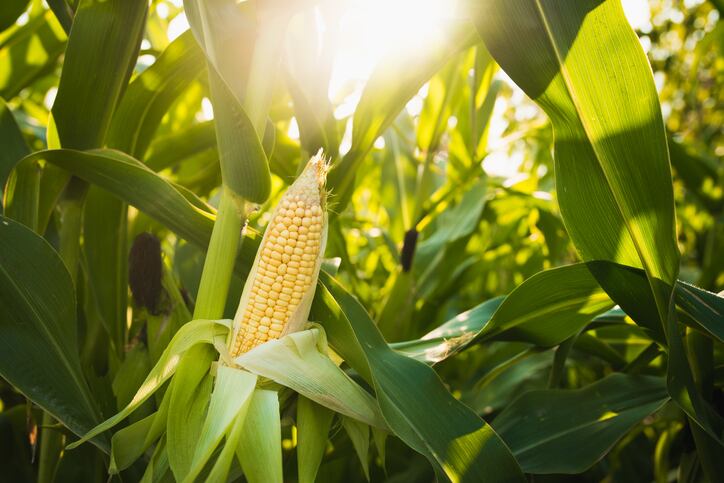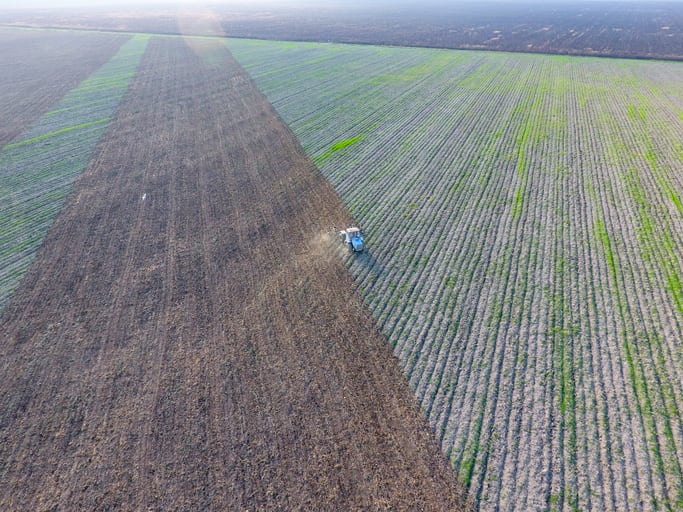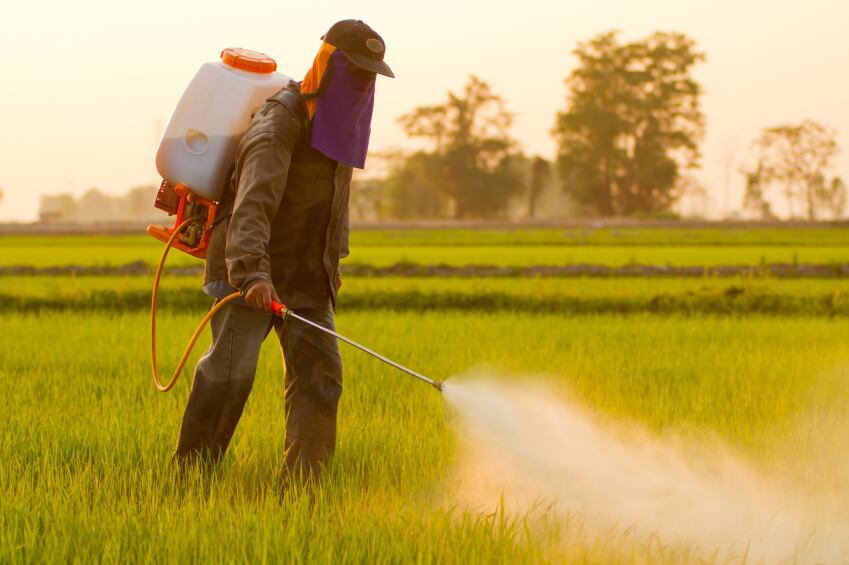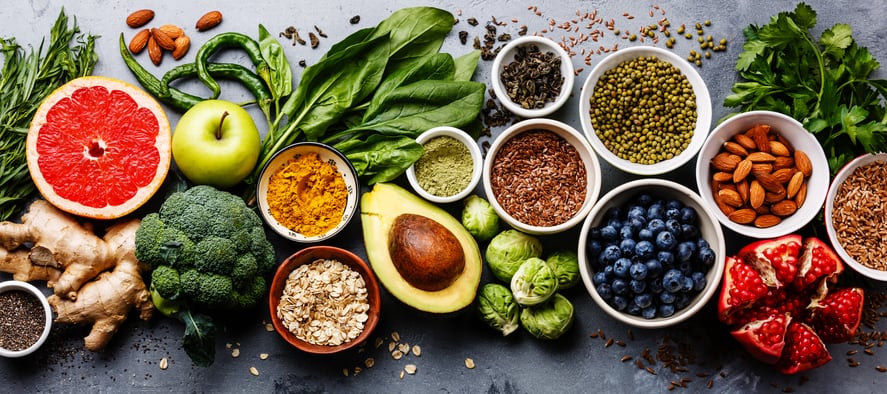PepsiCo sources some of its key crops directly from farmers - unprocessed oats for its Quaker brand; oranges for Tropicana juice; potatoes for Lays and Walkers crisps; and unprocessed corn for Doritos and other snacks - and it says that 79% of these directly sourced crops are grown by farmers engaged in its Sustainable Farming Programme.
(Other major ingredients such as wheat, palm oil, cane sugar, cornmeal and milled oats are sourced indirectly.)
“Lots of big food companies contract with large suppliers or trade via commodity markets but we have a very different model for certain direct crops," said David Wilkinson, senior director of European agriculture at PepsiCo Europe. "Fifty per cent of my team isn’t in procurement, they are trained agronomists.”
According to Wilkinson, three principles underpin the company’s sustainable farming and direct sourcing strategy: using data, being selective about who grows its crops, and collaborating with key strategic partners such as academic researchers.
The direct practices that result from these principles, such as improved irrigation techniques, new crop varieties or soil management, “will come together to improve agricultural resilience regarding climate change”, said Wilkinson.
Recent challenges include the drought this summer that hit crops in the UK and Benelux regions.
“We need to ensure we are taking on the latest and greatest agricultural practices to figure out better ways to feed the growing population. We could get into immediate action to solve the problems but taking a step back and reinforcing our work with farmers and other agri-food partners to apply best practice that maximises the efficiency of crops and improves resilience in the long-term - that’s what we are focused on," he told FoodNavigator.
Some of the sustainable farming practices it espouses, such as crop rotation, are inherently simple.
PepsiCo is the largest scale grower of peanuts in Europe, producing around 2,000 tonnes in Spain and Portugal. It asked its farmers to alternate pea and corn crops for a trial period and, thanks to the nitrogen-fixing properties of peas, corn yields increased by 15% while farmers needed 30% less fertiliser.
Others are more high-tech. The company is not looking into Blockchain, Wilkinson said, but has used I-crop for over 10 years, a crop-tracking tool that allows the manufacturer to “look more holistically across the supply chain”. By collating and analysing data on parameters such as crop performance, planting schedules and storage locations, PepsiCo has greater traceability over its supply chain, Wilkinson said.
As senior director of European agriculture for PepsiCo Europe, Wilkinson oversees the company’s sourcing strategies in an area that spans the UK to Turkey, Russia to Portugal as well as South Africa.
“This means we can observe what’s happening from one country to another and [share] the best practices," he said.
High tech, easy-to-use
Crucial to ensuring the success of new ag-tech, however, is its user-friendliness.
The snack manufacturer has put in place “grower-enabled irrigation scheduling” and irrigation audits in Spain and South Africa to ensure no water is lost through inefficiencies, giving farmers information on evaporation rates, for example, by SMS text message.
“[Farmers] can therefore have a rolling mass balance of their water usage, and ask themselves ‘Do I need 50 or 25 ml?’ It’s all about embracing technology but instilling it into practical tools for farmers,” said Wilkinson.
Keeping track of farm data also helps PepsiCo understand the underlying cause of problems, which may not be immediately obvious. In Serbia, for instance, its farmers recently faced the problem of water-logged fields.
“When we dug into the weather data, we found that weather wasn’t the root cause – it was nothing to do with the amount of rainfall. So we looked at the soil structure, and found we needed to train our farmers on soil management techniques to minimise compaction."
New crop varieties
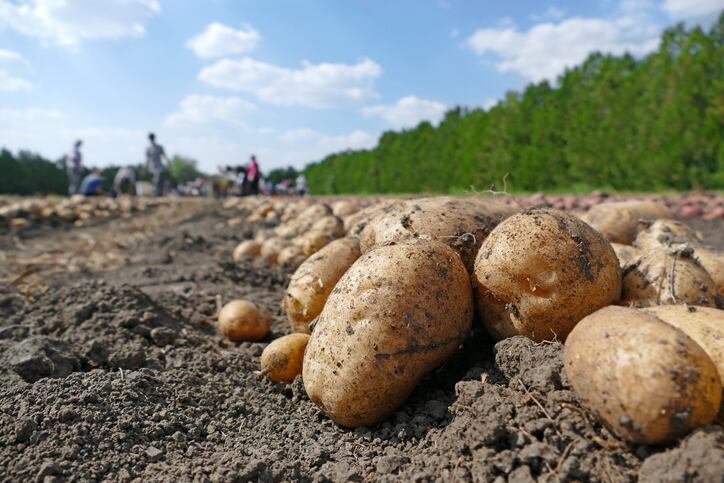
Developing new crop varieties is another way PepsiCo achieves its 'performance-with-a-purpose' driven aim of “better crops and more crops”, said Wilkinson.
“In Europe, over 65% of all potatoes we buy are our propriety varieties - some we bred ourselves and some we worked with others third parties to develop – and we are looking at doing that for corn and oats too.”
In addition to the farming benefits, this gives the manufacturer better control over the sensory characteristics of the crop, Wilkinson added, such as the crispy texture and taste consumers want.
Academic partnerships
Many of the technologies it uses in the field start out as research partnerships with universities.
Cambridge University was involved in creating the first I-crop while the University of Aberdeen developed a ‘carbon calculator’ that is used by PepsiCo’s UK suppliers “extensively” to determine the carbon footprint of a given crop.
In Turkey, it worked with the Middle East University, located in Ankara, and non-profit WWF on irrigation techniques while the University of Pretoria participated in developing the auditing schedule for irrigation among South African farmers.
Although it is important to build an agricultural system that is resilient in the long-term, farmers also need to see improvements in the short and medium-term if they are to continue with the suggested practices.
“We don’t force farmers to accept our suggestions […] and not all farmers do what we suggest immediately,” Wilkinson said. “Our experience when speaking with farmers is that you need to be data-based and well researched in your suggestions.
“I’m pleased to say farmers don’t just jump and do X, Y, Z, blindly just because I tell them to. By capturing data, studying it and providing them with full evidence of the benefits, they adopt the practices pretty quickly. Success breeds success.
“We are also pleased to have good relationships [with our suppliers] and some are very long, going back three generations, so that gives us credibility.”

